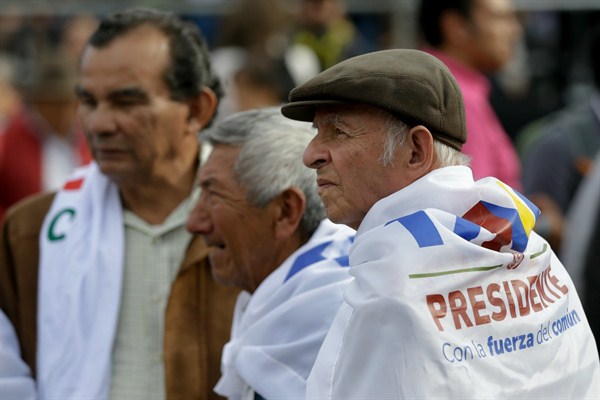On March 11, Colombians vote in what could be the biggest test of the country’s democracy in decades. For the first time, the now-demobilized Revolutionary Armed Forces of Colombia, or FARC, will compete at the polls as a newly formed political party. No matter how it performs, the FARC, now known as the Revolutionary Alternative Common Force—maintaining its old acronym in Spanish—is guaranteed 10 seats in Congress overall, with five in the Senate and five in the House of Representatives, as part of the landmark 2016 peace agreement.
But the former guerrillas are aiming higher. Running on a message of political reform, transparency, infrastructure improvements for remote regions and the eradication of illiteracy, among other promises mainly tied to social welfare, the FARC has fielded a total of 74 candidates, including its former military commander and now presidential hopeful Rodrigo Londono, widely known by his nom de guerre “Timochenko.”
Yet the assassinations of two FARC campaigners, along with death threats to many others, prompted the party to suspend all campaign activities last month. This violence is not only challenging Colombia’s transition to peace, it is also a worrying manifestation of how vulnerable the country’s democratic system is in a climate of intimidation and sharp polarization.

